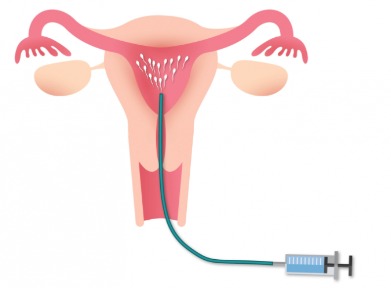
Introduction IUI For insemination with husband’s sperm(AIH):
Intrauterine insemination (IUI) is a fertility treatment in which sperm is placed directly into the uterus using a thin, flexible tube called a catheter. IUI is often used in cases where there are problems with the man’s sperm or with the woman’s cervical mucus that make it difficult for the sperm to reach the egg. It can also be used in cases of unexplained infertility or in combination with fertility drugs to increase the chances of pregnancy.
AIH stands for artificial insemination with husband’s sperm. In this case, the husband’s sperm is used for the IUI procedure rather than sperm from a donor. IUI with the husband’s sperm is typically done in cases where the man has a low sperm count or poor sperm motility (movement), or where there are problems with the woman’s cervix or uterus that make it difficult for the sperm to reach the egg.

How to Improve low Sperm count or poor Sperm motility (movement)
- Healthy Lifestyle Changes:
- Diet: Eat a balanced diet rich in antioxidants, vitamins, and minerals. Include plenty of fruits, vegetables, whole grains, lean proteins, and healthy fats in your diet.
- Exercise: Regular physical activity can help improve overall health and fertility. However, excessive or intense exercise may negatively impact sperm production, so moderation is key.
- Weight Management: Maintain a healthy weight, as being overweight or underweight can affect fertility.
- Avoid Excessive Heat: Heat can harm sperm production. Avoid hot baths, saunas, and tight-fitting underwear.
- Stress Management: High stress levels can interfere with fertility. Consider stress-reduction techniques like yoga, meditation, or deep breathing exercises.
- Supplements:
- Some supplements may help improve sperm health. Common ones include:
- Folic Acid: May improve sperm count and motility.
- Zinc: Essential for sperm production.
- Vitamin C and E: Antioxidants that protect sperm from damage.
- Coenzyme Q10 (CoQ10): May enhance sperm motility.
- Some supplements may help improve sperm health. Common ones include:
- Avoid Harmful Substances:
- Smoking: Smoking can reduce sperm count and motility. Quitting smoking is crucial.
- Alcohol: Limit alcohol intake, as excessive consumption can negatively impact sperm quality.
- Illicit Drugs: Avoid recreational drugs like marijuana and cocaine.
- Medication and Medical Treatments:
- Consult a fertility specialist who can assess your condition and recommend appropriate medical treatments. These might include:
- Hormone therapy to correct hormonal imbalances.
- Surgery to repair structural issues.
- Assisted reproductive techniques (e.g., in vitro fertilization or intrauterine insemination) in severe cases.
- Consult a fertility specialist who can assess your condition and recommend appropriate medical treatments. These might include:
- Manage Medical Conditions:
- Treat underlying medical conditions like diabetes, infections, or varicoceles that may contribute to low sperm count or motility.
- Regular Ejaculation:
- Regular ejaculation (every 2-3 days) can help prevent sperm stagnation and improve sperm quality.
- Optimize Sexual Timing:
- Understand the fertile window of your partner’s menstrual cycle and time intercourse accordingly for the best chance of conception.
- Environmental Factors:
- Avoid exposure to environmental toxins, such as pesticides, heavy metals, and industrial chemicals.
- Lifestyle Modifications:
- Limit exposure to electromagnetic radiation from devices like laptops and mobile phones, as excessive exposure may harm sperm.

